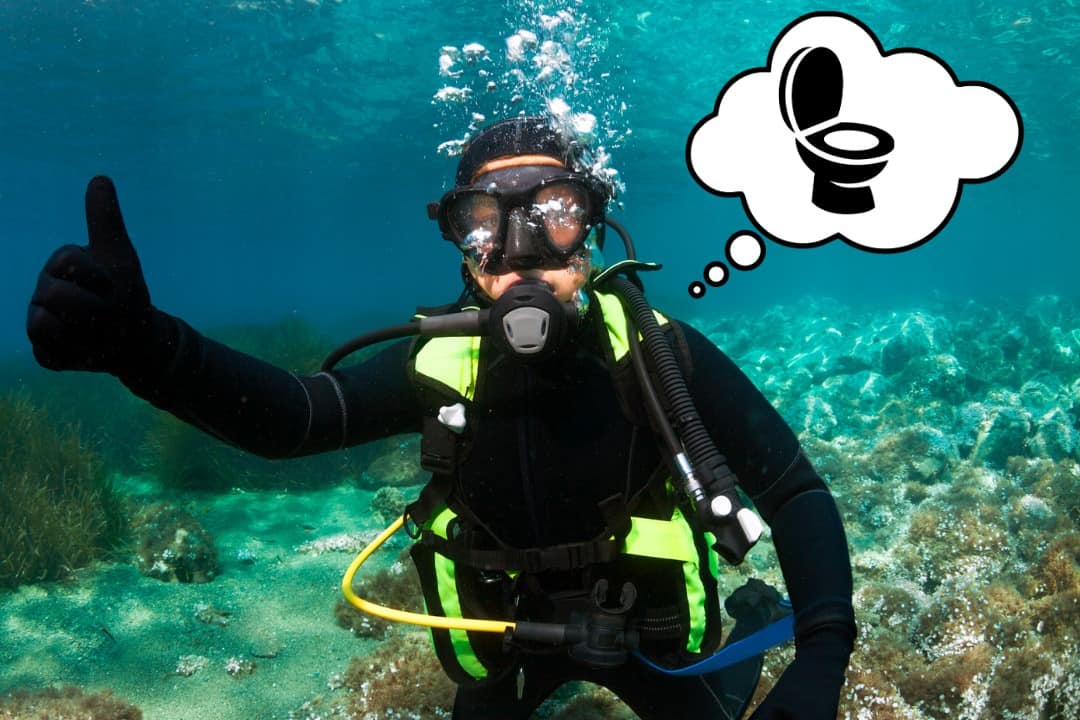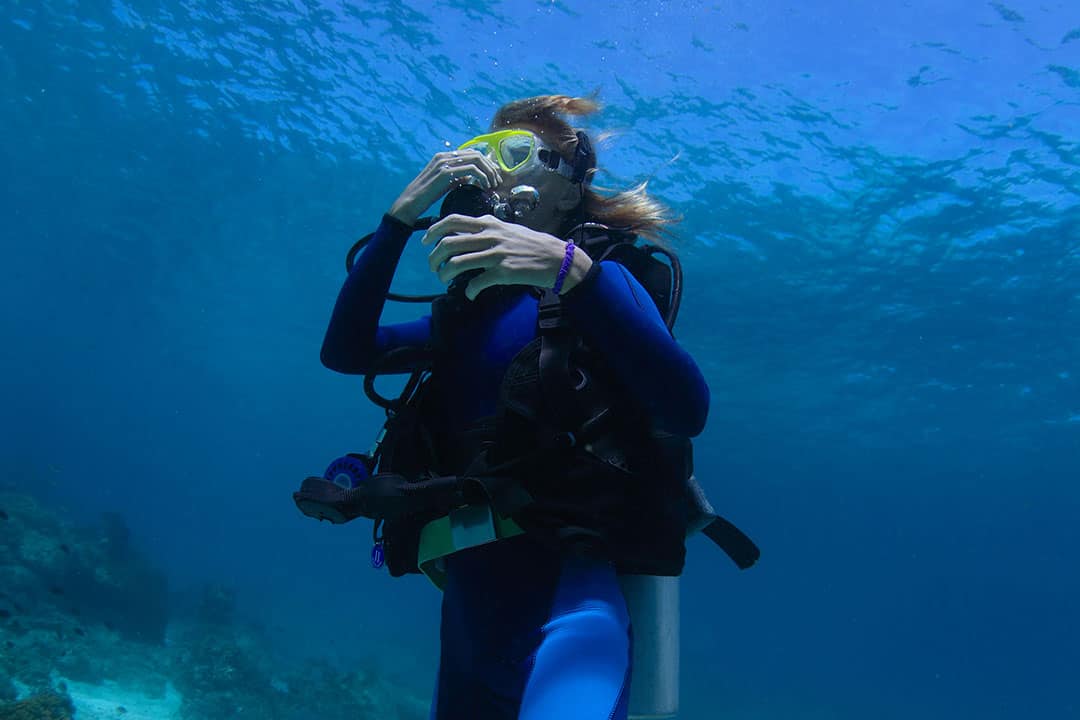Scuba diving requires extensive training and practice, but anyone willing to follow the basic rules can try it. In this article, I’ll go over the most important rules for a safe and fun dive.
What are the most important rules when scuba diving?
Because modern scuba diving has thorough safety standards, all of the most important rules are covered in a beginner class.
In this article, I’ll discuss the most important rules for before, during, and after the dive.
The most important rules for scuba diving are:
1 – Never hold your breath
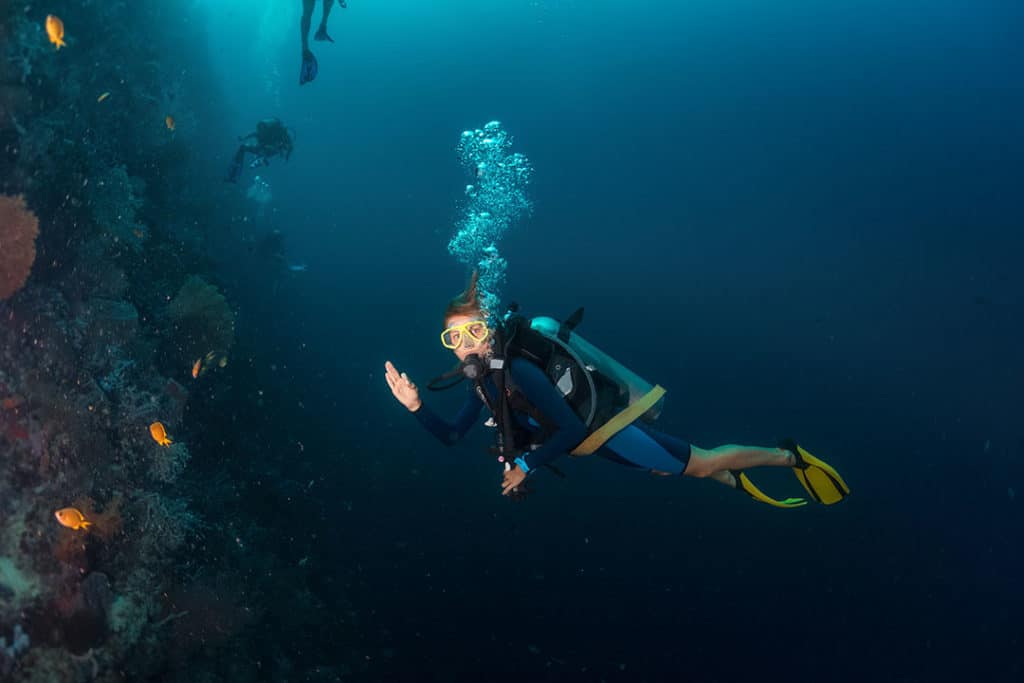
When you take your first scuba class, your instructor will tell you that the most important rule of scuba is to keep breathing and never hold your breath.
Divers frequently ask me, “Why would I hold my breath?” The answer is that you might do it accidentally.
If a careless diver kicks your regulator out of your mouth, you might panic, hold your breath and start to ascend (if you don’t remember your training to carefully replace your regulator).
The danger is that the compressed air in your lungs will expand if you ascend, and could damage your lungs or throw an air bubble into your blood.
It sounds scary, but it’s easily avoided as long as you breathe out while you replace your regulator or find your buddy’s.
2 – Ascend slowly
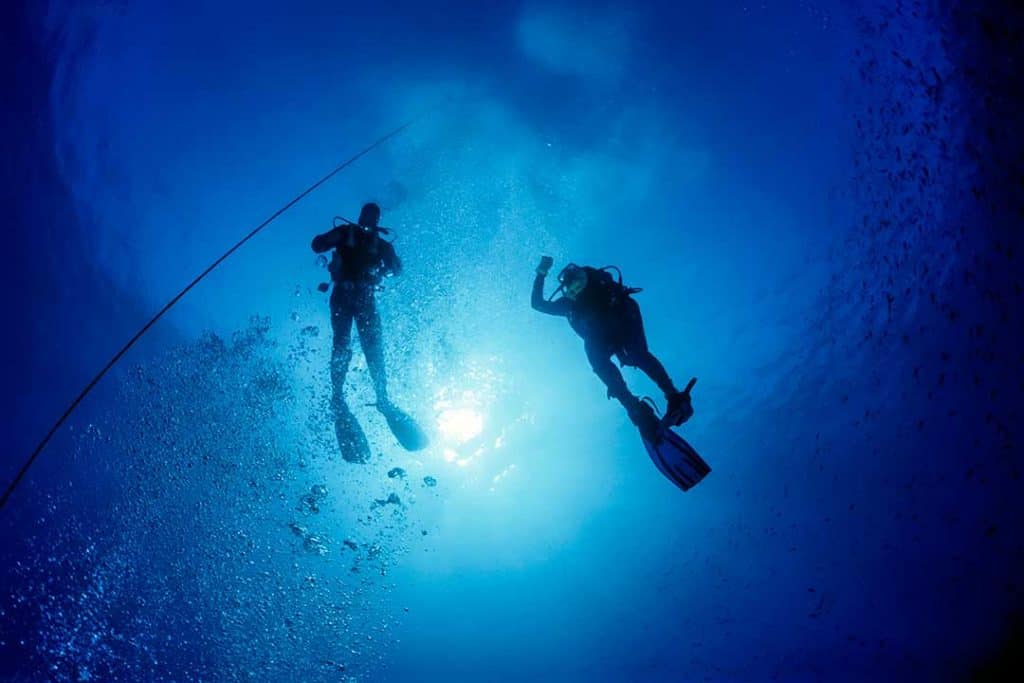
As we breathe compressed air on our dive, the gases dissolve into our blood.
It’s crucial to ascend slowly at the end of the dive to give that pressurized gas time to come out of our tissues, where we breathe it out harmlessly.
If we ascend too quickly, the gases can form bubbles in our tissues and blood, which can damage your organs as decompression sickness (“the bends”).
A five-minute or longer safety stop around three meters depth at the end of every dive gives us an extra layer of safety for those gases to come out before we surface.
3 – Stay close to your buddy
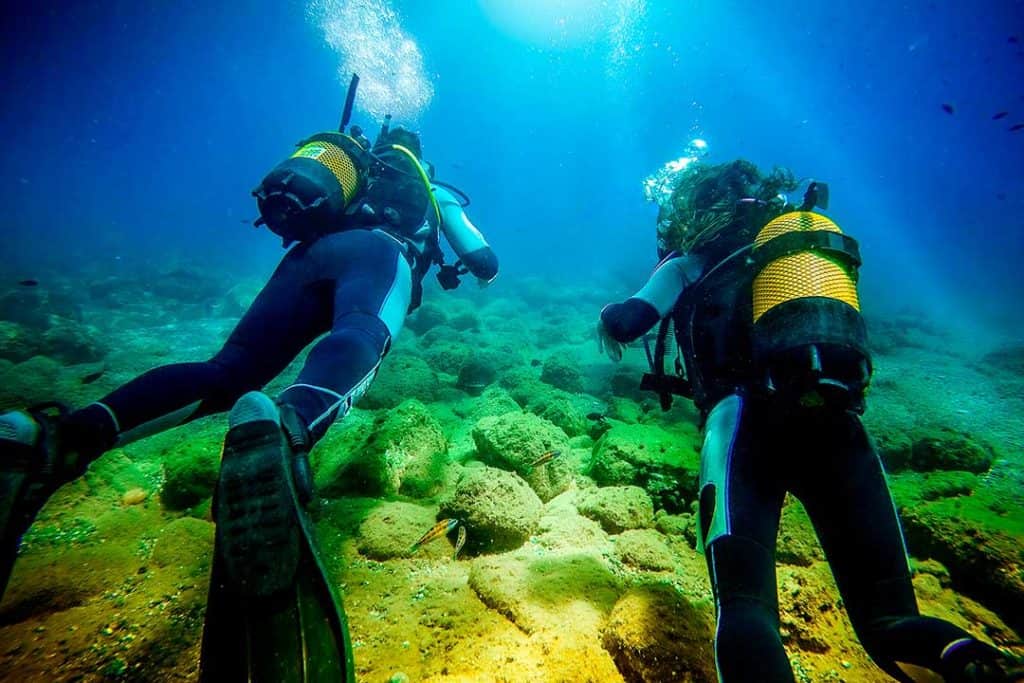
Think about being underwater as being an astronaut on a space walk. You’re in an environment where humans can’t survive without specialized gear.
It’s important to always have a dive buddy or an instructor within a few seconds swimming time so they can help you in case anything goes wrong.
They can offer you their spare regulator, calm you down if you get anxious, and help you both navigate back to the boat if you get lost.
Plus, they might need your help at some point, too.
4 – Do a pre-dive safety check
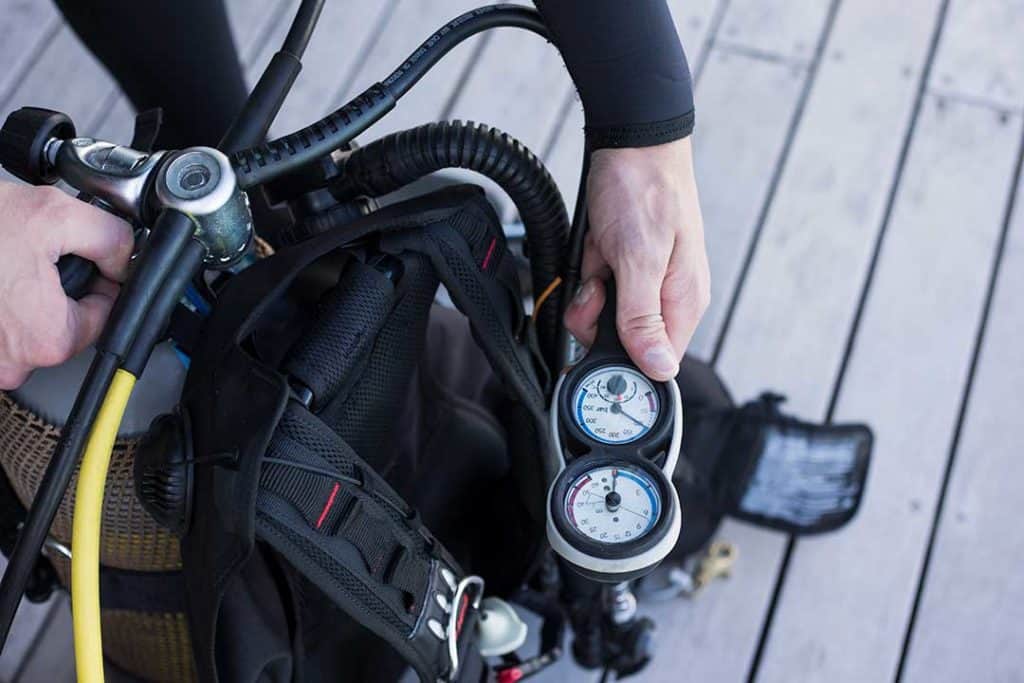
Once divers become experienced, they can start to feel overconfident and skip basic safety standards, like the pre-dive buddy check.
Before the dive, you check your buddy’s BCD, weight, releases, air, and make sure they have everything they need for the dive.
Then your buddy checks everything for you. Many dive accidents happen because a diver skipped the basic pre-dive check.
It’s a quick procedure that will prevent problems on your dive and assure that you feel safer and more secure.
5 – Keep a reserve of air
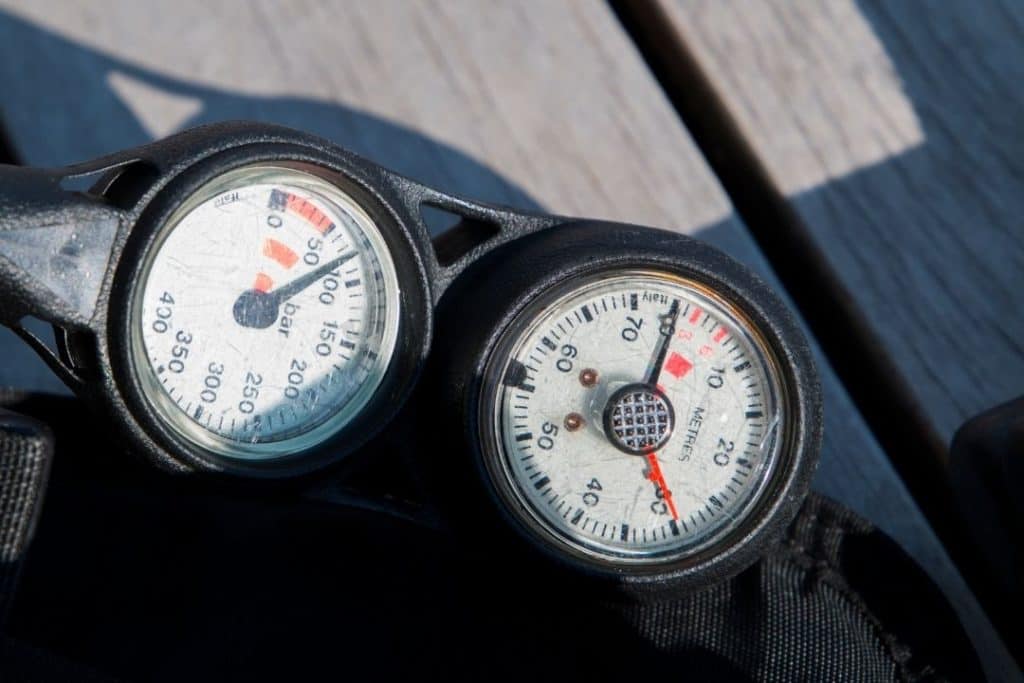
Divers can get wrapped up in the experience of the dive and stay under after their air reserve gets low.
Some divers even lie about how much air they have to their buddy or divemaster to get more dive time.
As an instructor, not only does this affect my planning about when the group needs to surface, it puts the diver in a dangerous position.
If they suddenly run out of air, they could surface too quickly and risk decompression sickness.
The diver could also force their buddy to come to their rescue and share air with their spare regulator, making the buddy babysit the diver as they both surface together.
Instead of pushing the limits, learn breathing techniques that will maximize your dive time and reduce your air consumption.
6 – Equalize often
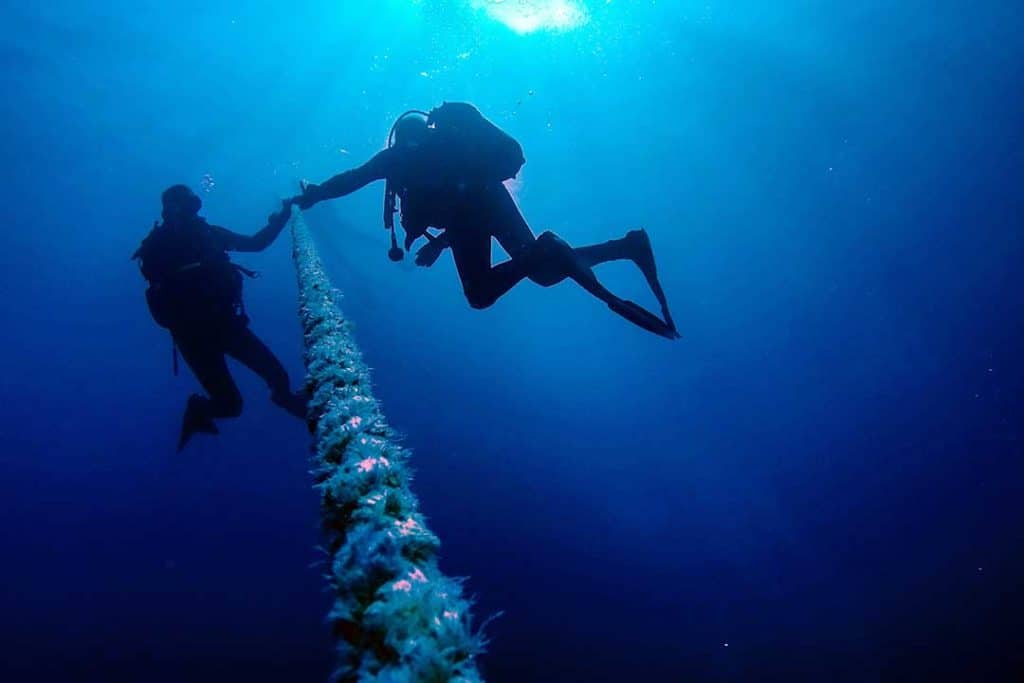
One of the most difficult skills for new divers to learn is equalization, where they counter the water pressure from outside their ears by adding air to the inner ear.
Divers can get distracted by the descent and forget to equalize frequently. The pressure can inflame or damage the middle ear if it’s intense enough.
It’s best to equalize early and often – before you feel pressure. There should not be any pain.
The Valsalva maneuver, holding your nose and blowing, is the most common method, but sometimes swallowing or moving the jaw can do the trick.
On the dive, if you descend to different depths, you will have to keep equalizing.
7 – Stick to your limits
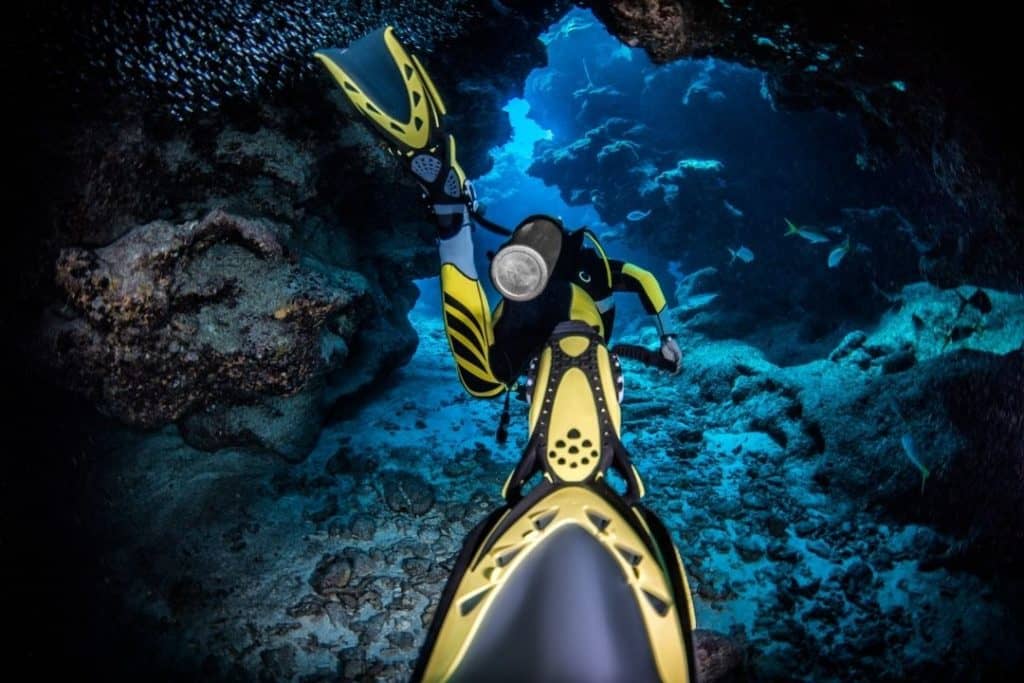
Divers are always tempted to go deeper and explore further.
On a wall dive, perhaps you’re Open Water certified and supposed to stick to an 18-meter maximum depth, but the group of advanced divers at 30 meters looks like they’re having so much more fun!
If you pass your planned depth limits, it will affect your entire dive.
You will consume more air, you will absorb more gases, and you will reduce the amount of time you can stay underwater.
If you’re wearing a computer, it will tell you if you’ve passed the no-stop limit.
If this happens, you can no longer safely surface without doing a mandatory decompression stop.
You’ve absorbed too much gas and risk decompression sickness.
Your dive buddy and divemaster will not be happy having to end the dive early and wait for you to do a 15-minute stop at 15 meters.
8 – Respect the dive site
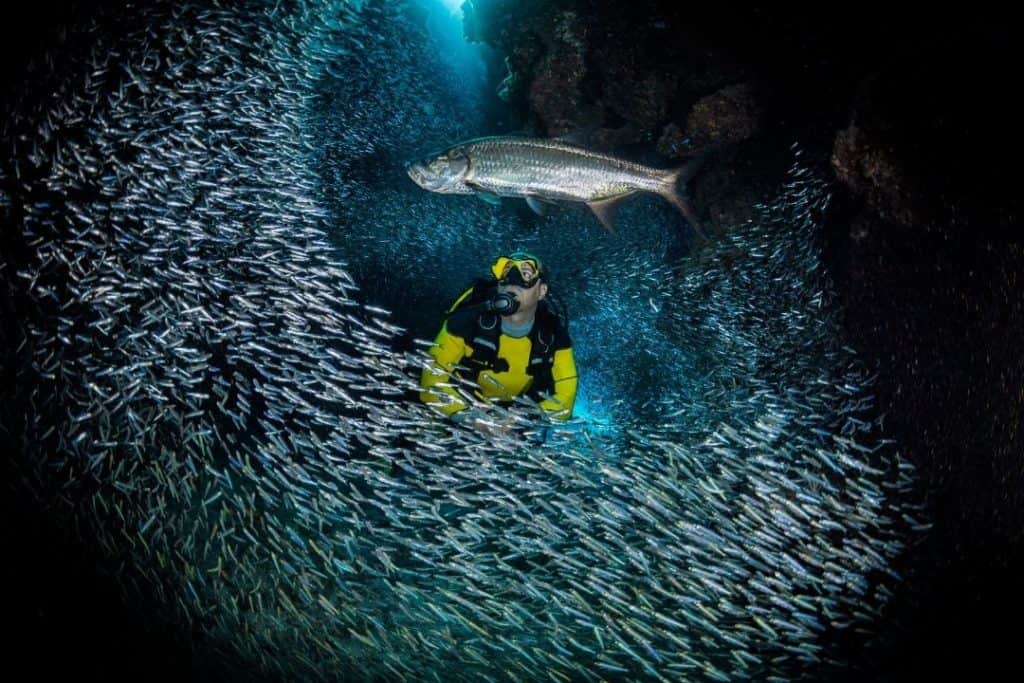
We dive to become a part of the underwater world.
The truth is, our presence can damage these fragile ecosystems and contribute to their decline.
As ambassadors of the ocean, it’s our job to respect marine life by keeping our distance from the creatures we see, not touching the reef (watch your fins!), and removing trash if it’s safe.
Chemicals from sunscreen can kill corals and wildlife, so before we jump in, we can be sure to use only reef-safe sunscreen containing zinc or non-nano titanium.
We can mind our belongings and trash on the boat and on shore to make sure none gets swept into the ocean.
It’s vitally important that we preserve dive sites for the creatures who live there and for future divers.
Conclusion
The more scuba training you take, the more complex rules you’ll learn. But it’s important to never forget the basics and keep these key rules in mind on your dive.
Do you think these are the most important rules? If you have a question or something you would add, leave a comment below!

